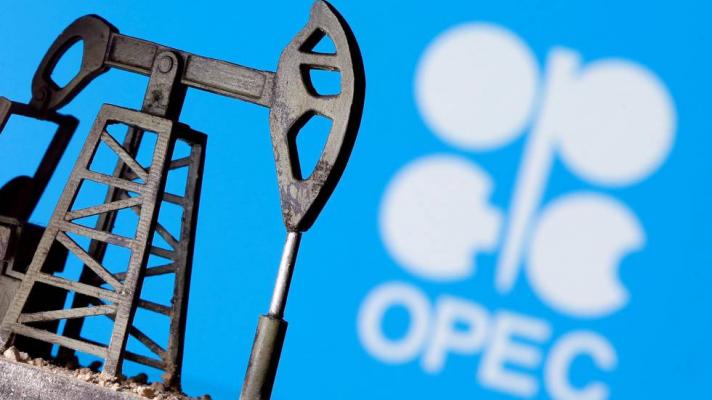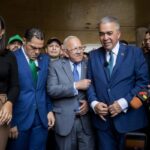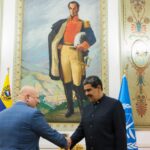
The energy ministers of Saudi Arabia and the United Arab Emirates have declared that the OPEC+ alliance of oil producing countries will continue to leave politics out of its decision-making process. This statement comes amidst pressure from the West on the bloc to increase oil production and lower the price of crude oil and to expel Russia from the group.
The organization discarded the politicization of oil production the sole objective of which is isolating Russia, and announced that it will instead focus on stabilizing fuel prices, reports The Cradle.
“If we don’t [leave politics at the door] we would not have dealt with so many countries at different times,” said Saudi Energy Minister Prince Abdulaziz bin Salman, when asked if OPEC+ has a moral responsibility to expel Russia from the alliance. “It could have been with Iraq at one point, it could have been with Iran at one point.”
Meanwhile, UAE Energy Minister Suhail al-Mazrouei said that OPEC+ has “one mission and only one mission, which is stabilizing the market. So we cannot be politicizing, or bringing politics to the organization having that debate.” He added that while countries could unilaterally refuse to buy Russian oil, to expel Russia from the alliance “would contradict its ethos.”
Although OPEC+ will raise production by 432,000 barrels per day from May 1, this increase is not a concession to Western demands, but a decision adopted after internal recalculations of reference production levels. It is worth recalling here that the bloc has increased production targets by 400,000 barrels per day each month since August 2021.
In addition, the Joint Technical Committee (CTC) that advises OPEC+ has announced that it will stop using the energy policy data provided by the International Energy Agency (IEA).
The Paris-based IEA, the main funder of which is the United States, advises Western governments on energy policy.
This latest rift between Washington and several major oil-producing countries is reportedly due to erroneous data provided by the IEA. Earlier this week, UAE Energy Minister Suhail al-Mazrouei said institutions like the IEA need to be “more realistic” and not issue “misleading” information.
Due to the IEA’s questionable practices, the CTC moved with immediate effect to replace its data with reports from Edinburgh-based Wood Mackenzie and Rystad Energy.
Calls from the United States and the European Union to Arab nations to sanction Russia have gone unheeded. In fact, OPEC officials warned the EU against banning oil imports from Russia, saying that the markets will see massive price increases beyond the surge already seen.
Russia is an OPEC ally and co-chairs the OPEC+ group, which has cooperated on oil supplies to support oil markets since 2017. The West’s intention of isolating Russia is not an easy task, given that the Eurasian country is an important source of energy, especially for Europe.
Featured image: OPEC will leave politics out of its policies and will try to stabilize oil markets. File photo.
Translation: Orinoco Tribune
OT/EF/SC
- orinocotribunehttps://orinocotribune.com/author/orinocotribune/
- orinocotribunehttps://orinocotribune.com/author/orinocotribune/April 23, 2024
- orinocotribunehttps://orinocotribune.com/author/orinocotribune/
- orinocotribunehttps://orinocotribune.com/author/orinocotribune/
Tags: Crude Oil Production IEA OPEC+ Russia Russia-Ukraine conflict Saudi Arabia UAE US Interference
Share this:
- Click to share on Twitter (Opens in new window)
- Click to share on Facebook (Opens in new window)
- Click to share on LinkedIn (Opens in new window)
- Click to share on WhatsApp (Opens in new window)
- Click to share on Reddit (Opens in new window)
- Click to share on Telegram (Opens in new window)
- Click to email a link to a friend (Opens in new window)





